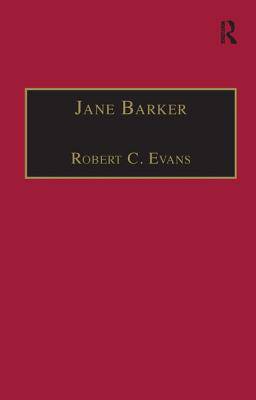
- Afhalen na 1 uur in een winkel met voorraad
- Gratis thuislevering in België vanaf € 30
- Ruim aanbod met 7 miljoen producten
- Afhalen na 1 uur in een winkel met voorraad
- Gratis thuislevering in België vanaf € 30
- Ruim aanbod met 7 miljoen producten
Zoeken
€ 202,95
+ 405 punten
Omschrijving
Jane Barker (1652-1732) is increasingly being recognised as one of the most important English women writers of the late-seventeenth and early-eighteenth centuries. The author of both poems and novels (including novels containing numerous poems), Barker was largely ignored for many years but has recently been the subject of intense interest and investigation. Despite this, no complete, collected edition of Barker's poems has yet appeared, and the present volume is the first reproduction of her important early published volume, Poetical Recreations, to be issued in facsimile as a printed book (rather than on microfilm). Jane Barker's life was rich in incident. Her early poetry was enthusiastically advocated by the male students at St. John's College, Cambridge. A persecuted Catholic and a subsequent longtime exiled supporter of the Jacobite cause in France following the 'Bloodless Revolution', she was also physically disabled and without great financial means, in part because she never married. Almost certainly her decision to begin publishing novels was motivated, on some level, by financial need. By the time she died, in March 1732, at the age of seventy-nine, she had lived a life that had been long, eventful, and accomplished, but by no means easy.
Specificaties
Betrokkenen
- Auteur(s):
- Uitgeverij:
Inhoud
- Aantal bladzijden:
- 448
- Taal:
- Engels
- Reeks:
Eigenschappen
- Productcode (EAN):
- 9780754631453
- Verschijningsdatum:
- 17/06/2009
- Uitvoering:
- Hardcover
- Formaat:
- Genaaid
- Afmetingen:
- 138 mm x 216 mm
- Gewicht:
- 747 g

Alleen bij Standaard Boekhandel
+ 405 punten op je klantenkaart van Standaard Boekhandel
Beoordelingen
We publiceren alleen reviews die voldoen aan de voorwaarden voor reviews. Bekijk onze voorwaarden voor reviews.












